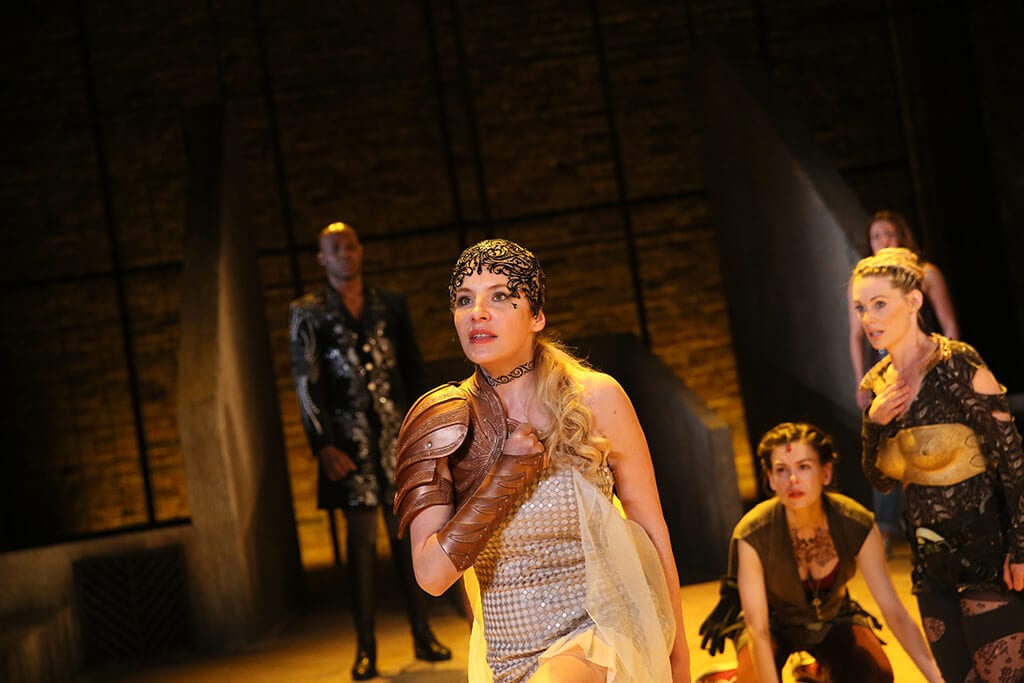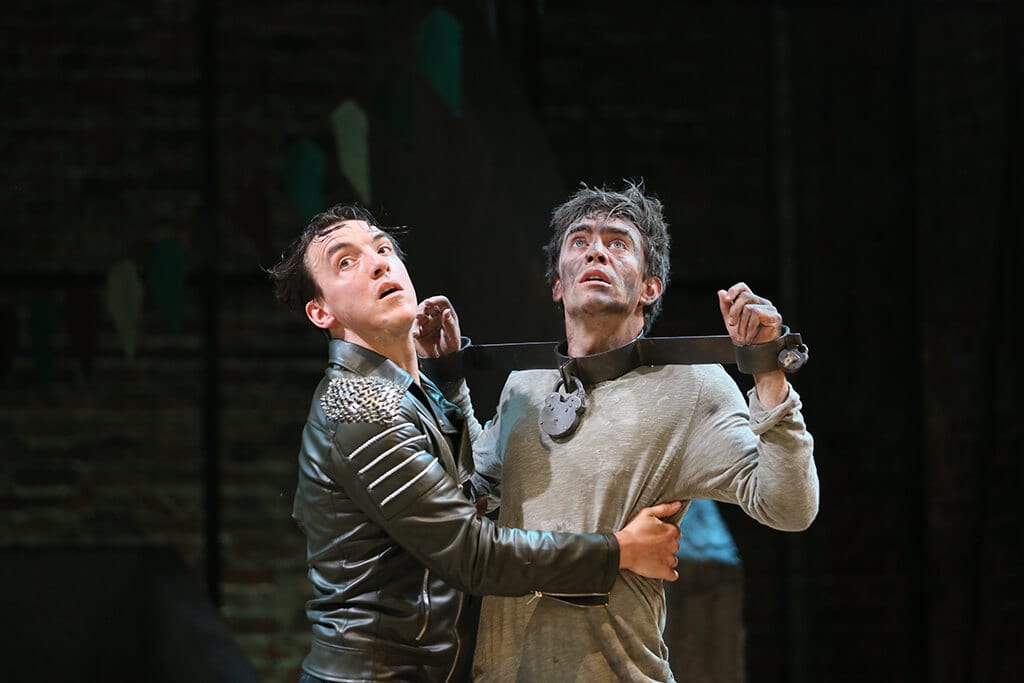The authorship of The Two Noble Kinsmen is one of Shakespeare experts favourite topics of discussion. The consensus now is that John Fletcher and William Shakespeare wrote the play together, with Fletcher taking the middle three acts, and Shakespeare on the first and fifth.
Thebans, Palamon and Arcite, are captured by the Duke of Athens as he attacks their city. Whilst imprisoned, they see the sister in law of their captor, Emilia, and instantly each fall in love with her. Their bromance is pushed to the limit in their pursuit of her affections as Arcite is freed before Palamon, and rather than help his friend, he seeks Emilia. Palamon escapes with the infatuated daughter of the jailer. The best friends eventually agree to a duel to see who wins the heart of Emilia, and who loses their heads.
This rarely staged play feels rather weighted by small sub plots which lack momentum, but the central narrative of Palamon and Arcite’s struggles to combine their friendship with their romantic interests often provides humour and is nicely paced. In this production, it is the mental deterioration of the Jailer’s Daughter which proves most interesting. Danusia Samal’s performance is Ophelia-esque, both distraught and lost when on stage. Nobody knows how to deal with her, and she herself cannot see anything beyond Palamon’s love.
Jamie Wilkes (Arcite) and James Corrigan (Palamon) have good chemistry, with complimentary character traits. It is as hard to watch these two friends fighting as it is hard for them to have to hurt one another. Inevitably though, this culminates in an off-stage fight which leaves the loser bloodied and to be sent to their death.
Anna Fleischle’s set design created a bland and barren landscape with prison walls which descended from above; however, her costume designs often seemed mismatched and lacking cohesion. Tim Sutton’s musical compositions added levels of emotional underscoring.
This version of The Two Noble Kingsmen felt slightly unsure of itself at times, particularly in the sections written by Shakespeare. The ensemble cast at times felt a bit lost, but Samal’s powerful performance drove the production through its lengthy running time.





